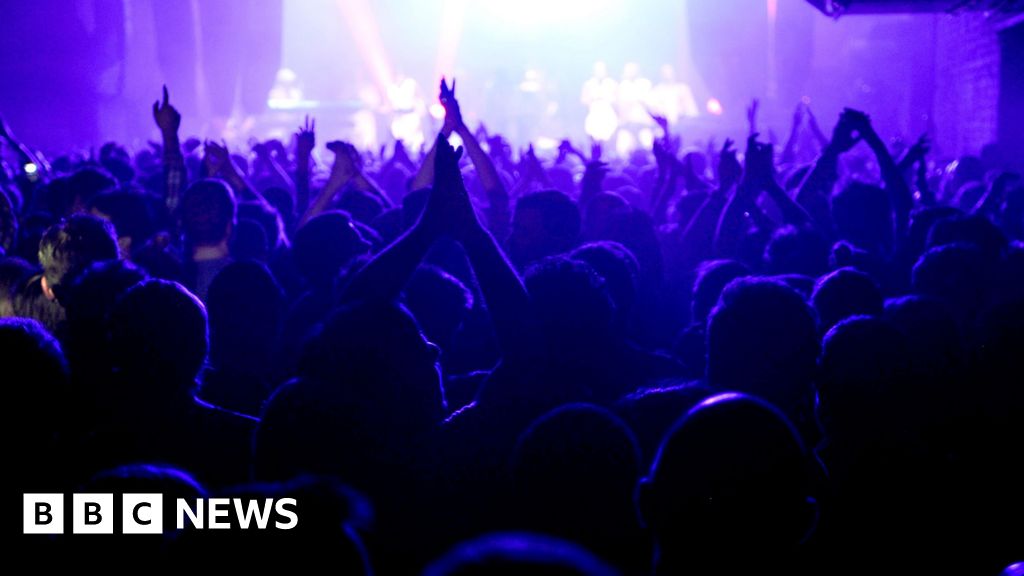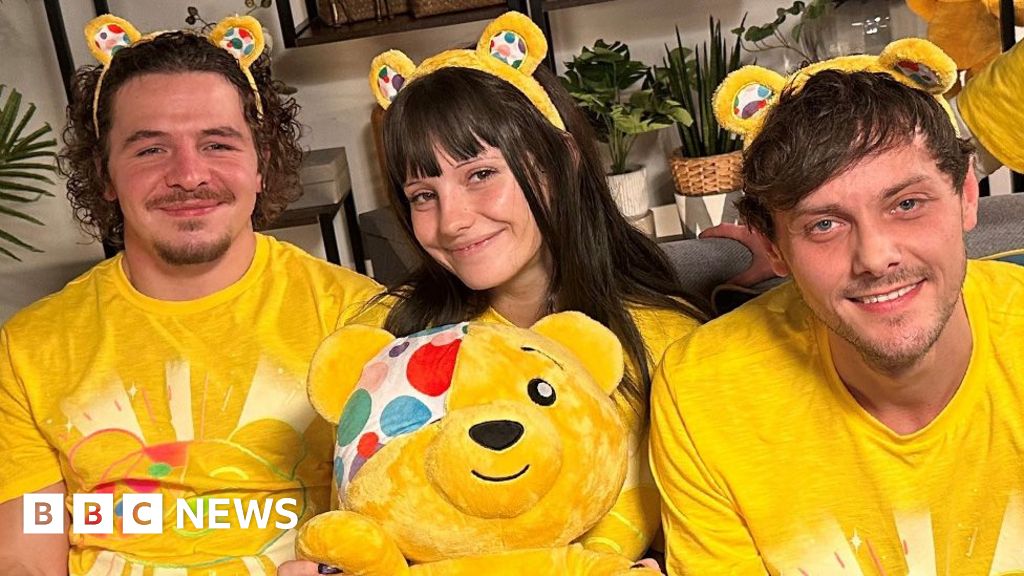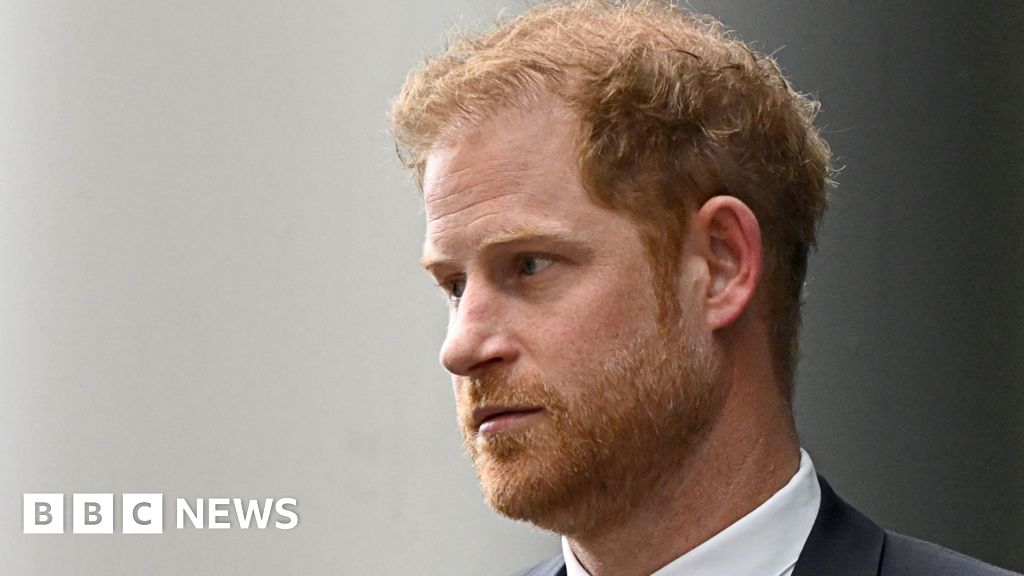ARTICLE AD BOX
By Mark Savage
BBC Music Correspondent
Image source, Island Records
Image caption,Sigrid was born and raised in Ålesund, Norway
Is anyone enjoying being a pop star right now as much as Sigrid?
Here are just some of the 38 things the Norwegian pop star said she "loves" in the course of our 30-minute interview last week.
Being on a tour bus, being on stage, singing softly, singing loudly, writing new songs, making playlists, surprising people with her ability on the piano, learning archery for a music video, winning an NME award, going to festivals, meeting her "incredible" fans, and blasting music in her new electric car.
"I'm so lucky," she enthuses. "I can't wait to start playing live again."
The only problem with being so passionate about your job is that, when it stops, it calls your entire existence into question.
That's what happened in 2020 when, a few weeks into recording her second album, the pandemic struck and Sigrid found herself back at her parent's home, skiing and hiking while she waited for the music industry to start up again.
And waited... And waited...
In her first interview after lockdown lifted, she told iD magazine the period was "the closest I've been to an identity crisis".
It was a line that dovetailed neatly with her comeback single, Mirror, a blossoming disco anthem about conquering loneliness and emptiness. But a year later, she'd like to modify the quote.
Warning: Third party content may contain adverts
"I definitely said that, and of course the past two years have been a scary time. It gave us the opportunity to reflect about ourselves and what we want in life and how we want to live," she says.
"So I definitely had a tiny moment of it, but I think I'm good."
That becomes abundantly clear as soon as you fire up Sigrid's second album, How To Let Go.
From the title onwards, it's a dynamic pop record that finds the singer shedding self-doubt and toxic relationships to emerge leaner, stronger, happier.
"There's a lot of confidence," she agrees on a Zoom call from the offices of Island Records. "It's very organic, but it's very uplifting."
The album follows 2018's Sucker Punch, which racked up more than a billion streams, cementing Sigrid's status as the BBC's Sound of 2018.
Settling down to discuss the new record, the 25-year-old reveals the secrets of her "awards closet" and her habit of intimidating producers... as well as some of those 38 things she really loves.
Image source, Island Records
Image caption,Sigrid's new album was mostly written in Denmark during the Covid-19 lockdown
Hello there! What's that Zoom backdrop?
I'm in an office at my record label, so I've got all these accolades behind me. There's one for Bob Marley and one for Sean Paul.
I have them all in my wardrobe in my apartment in Oslo!
Well, in my previous apartment, I hung them behind the couch in my living room. But every time I got home, I was reminded of this polished version of myself that had nice hair and make-up when I just wanted to watch Netflix and eat tacos. So now I have them in a small walk-in closet instead. But I keep my NME award on the piano!
Your first hit single, Don't Kill My Vibe, was about record industry execs who tried to silence you during a recording session. Has that attitude changed now you've got a wardrobe full of awards?
Yeah! I almost feel sorry for people who turn up to do a session with me. I think they're like, "Ooh, she wrote Don't Kill My Vibe... we'd better be careful." But I feel like I trust myself more now, as well. I really like doing writing sessions. I like meeting new people.
Is it intimidating to walk into a studio and have to write a song with someone you've never met?
It's exciting. You walk into the studio and you have nothing, then you walk out and maybe you have something great. It's amazing, that feeling - the moment when you look at each other and you're like, "Did we just make like a really good hook?"
Image source, Getty Images
Image caption,The star is set to play the Isle of Wight festival, Glastonbury and TRNSMT this summer
Without using the word "lockdown", tell me how making this album differed from your debut.
On Sucker Punch, I only ever had one day or two days to write a song and then I was off on tour. If I wanted to make any changes, there wasn't time.
For the second one, How To Let Go, with not having to be anywhere else, I was in a little studio bubble. We wrote most of it in Copenhagen, because there was a travel corridor between Denmark and Norway, and we would just go to the studio every day for weeks.
Despite the whole "identity crisis" quote, it's a really positive album.
Absolutely. Even Mirror speaks about accepting who you are and the things you're insecure about. It's a very empowering track.
We're going to be playing these songs for the next couple of years, so I thought, you might as well make it fun!
It feels like it's a record that's designed to be played live.
I think that stems from the fact it was written in a time where we weren't allowed to tour at all.
Taking that part of my life away was really hard because I feel so happy when I'm on tour. I thrive on tour. I love being on a tour bus. I feel like I'm on an endless summer camp with my friends in the band and crew. And it's amazing, I feel like my best when I'm on stage - which is kind of weird - because you're standing in front of a lot of people, but I just feel super confident.
Image source, Getty Images
Image caption,Sigrid recently played a show for fans at the top of the Empire State Building
You use a lot of live drums and guitars, which is unusual for a modern pop album. Your next single, Dancer, even feels like it was recorded live by the band in the studio.
Absolutely. I knew I was going to make a record that had very organic instrumentation on it because I've always loved that type of music. Growing up, Coldplay was my favourite band in the world. It still is, to be honest.
So I was thinking a lot about my band when I was writing. I really wanted them to shine when it came to playing it live. And Dancer is just a sweet, sugary, psychedelic song about being completely in love. It's got a very hands-in-the-air, summer festival vibe. I'm so excited to play it live this summer.
Guitars seem to be making a comeback ever since Olivia Rodrigo's Good 4U conquered the charts.
It's definitely something that's been bubbling. But we wrote a song like It Gets Dark with a massive guitar solo in January 2020. Sometimes these things just take a while to come out.
Even on your first album, the songs often had the dynamics of rock music, even if it was more synth-based.
Well, the first song I ever covered, in seventh grade when I was 12 years old, was Nirvana's Smells Like Teen Spirit.
No way! Did you play the guitar riff?
No! I was clenching onto the microphone for dear life. I was so nervous!
And now you've recorded a song with Bring Me Horizon. How did that collaboration come about?
I've been a fan of Bring Me for years. We often play them as our hype music before we go on stage. And apparently they were fans of me, as well. Olly [Sykes, singer] told me his wife Alyssa introduced him to my music and they went to a show of mine a couple years ago.
Then I met Jordan Fish [keyboard player] at Reading Festival last summer. I freaked out. I was totally starstruck. And then he said they had a demo and they wanted to go into the studio with me. I was like, "OK, cool" and that song was Bad Life. We spent a really nice day recording it. I wrote some new lyrics, put my touch on it, and we've just been hanging out ever since. It's been really cool.
Warning: Third party content may contain adverts
For me, the best track is the opener, It Gets Dark.
Thank you! It's my favourite song I've ever written.
That was written in LA before the lockdown with Emily Warren [writer of Dua Lipa's New Rules and Don't Start Now]. I remember stressing out because I couldn't work out if we were writing a verse or a chorus or a pre-chorus, and Emily was like, "Don't worry. They're all just parts of the song. We'll figure out the rest later." So we didn't really think about how it was going to turn out. It was just, "This sounds sick and that's the most important thing."
What's the story behind the lyric, "It gets dark so I can see the stars"?
At that time, I was feeling a bit torn between my life in Norway and my life on tour. I don't want to sound like I'm whining - but you can miss home at the same time as you love being on stage... and you just fee completely torn.
I thought it might be a metaphor for when the lights go down and you step onto the stage.
It could be, yeah. A little bit. It's definitely a spin on how, as a solo artist you're just - "whooosh" - shooting through space by yourself. But that line's also about how there's always light at the other end of something difficult, and in order to appreciate the good stuff, you need to know what it's like to be sad.
How have fans been responding to lyrics like that?
People have been reacting so well. I've had people texting me saying they feel really lifted up by the songs just, like, in their everyday life. I really appreciate that.
That's what I want the album to do - to make everyone feel a bit better.
Sigrid's album, How To Let Go, is released on Friday, 6 May.
Follow us on Facebook, or on Twitter @BBCNewsEnts. If you have a story suggestion email entertainment.news@bbc.co.uk.

 2 years ago
51
2 years ago
51








 English (US)
English (US)